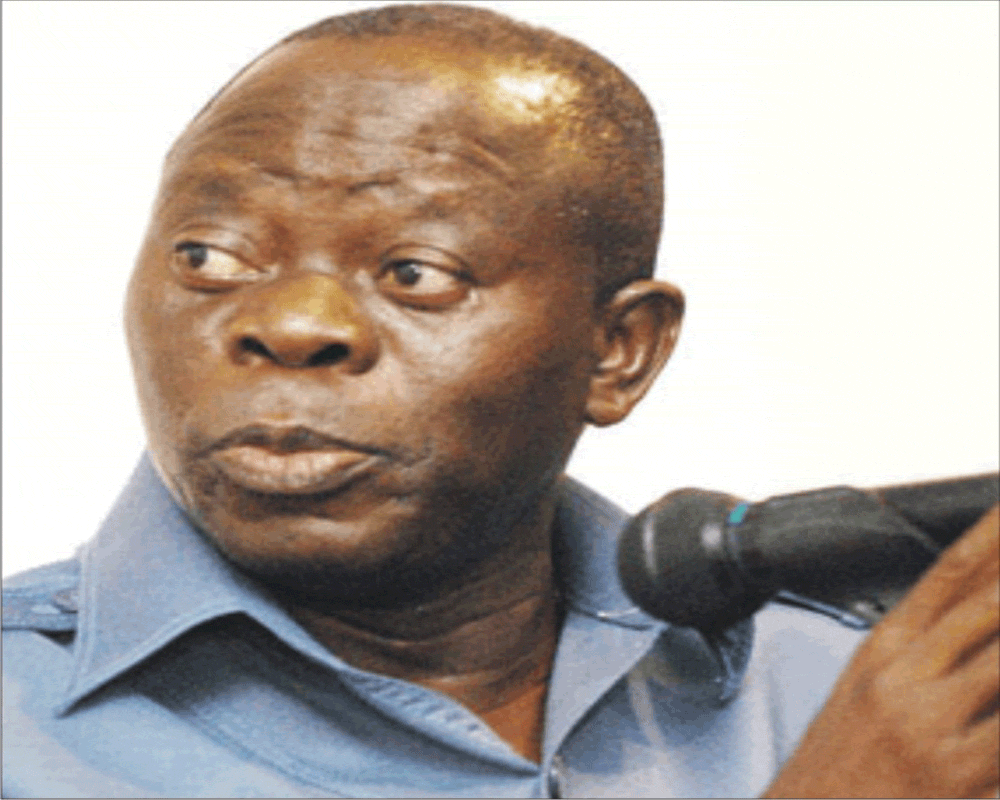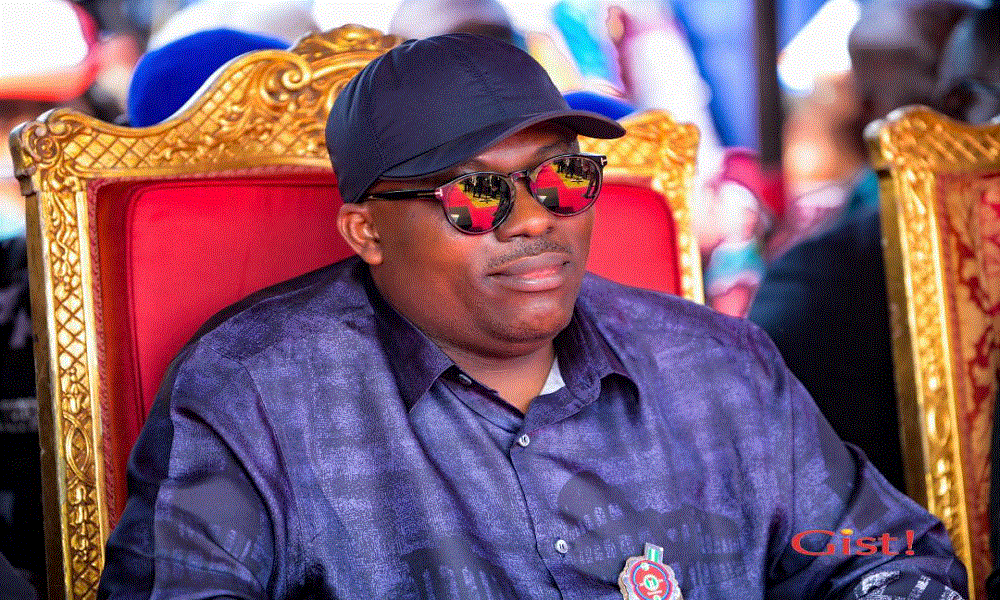Nnimmo Bassey, A Poet On The Run: Concluded
The poet was openly and deeply involved in the struggles of the era to chase away the military from Nigeria’s political landscape. Wild covert and overt agents of the infamous junta of Abacha were unleased on his trail; and the poet had gone into hiding in a place in Ibadan, Oyo State capital, for a period of over four months. His beautiful and easy-going wife, Evelyn and his two children – Otoabasi and Daramfon, had relocated from Benin City to Uyo, capital of Akwa Ibom State (his home state) because of the persistent intimidations and threats to their lives by Abacha’s raging agents. Ekere Nkanga, the poet’s brother-in-law, then a notable human rights activist with the CLO, Nigeria’s premier and leading human rights organization, was arrested in the poet’s (Nnimmo Bassey) house in Benin City. He was detained for three months at the notorious Oko Prisons in Benin City without charge or trial.
Majority of the poems in Poems on the Run were written while the poet was underground (in hiding) in Ibadan. Two great Nigerian poets, Professor Niyi Osundare and Odia Ofeimum praised the poet. “These poems distill meaningful music from the adversity of imperiled freedom”, Osundare wrote. And our Ofeimum also wrote, “–On the Run in essence confronts the banal misuse of power as well as the anger riding from Goma to Ogoni and Freetown and Banjul to Abuja were as prefigured in the poem, “Shell…..”
The Poems on the Run collection is dedicated to “Ken Saro-Wiwa, Ekere Nkanga…(who were) denied justice and in the memory of Sesan Ajayi, the poet who left”. In one of the longest poems in the book, titled, “Shells”, which has 45 lines, and 9 stanzas, Bassey, the poet cried, “….turn the sod in the mass/Graves to Goma and Ogoni” (in line 16-17). He used visual and concreate images, symbols and metaphors. There were no much of embellishments because he was a very angry person then. While hiding from the Abachaic terror, he also wrote a 33- line poem for his wife (page 20-21), whom he described as “Comrade”. It wasn’t a love poem. His words there were quite denotative and comradely, and also for his children, titled, “See you” (page 24), and other comrades outside his family “Days of rage”(page 25).
On Wednesday, 5 June, 1996, rampaging operatives of the State Security Service (SSS) now called Department for State Security (DSS) kidnapped Nnimmo Bassey. He was on his way to Accra, capital of Ghana to attend the World Environment Day. It may be recalled that five months after, this writer (Patrick B. Naagbanton) and Uche Okwukwu, then his comrade and radical human rights lawyer and activist were also kidnapped from the central motor park in Uyo on their way to Calabar, Cross River State by over 30 SSS operatives. They were tortured and held in an isolated and cloudy and cell with suspected armed robbers and assassins awaiting trial or executions, transferred from Aba, the market town in Abia State, south-east. Other activists throughout Nigeria also suffered similar abuses.
Intercepted is a collection of Bassey’s detention poems. The book contains 75 poems. The poems in this collection are relatively short, but laden with powerful messages. One of those short poems with potent messages is “Nights out” on page 22. This poem has 9 lines, deliberately constructed in short and loose lines, though there is a caesura (break) somewhere in the line. “Luxury night out on the veranda /head jammed to the threshold of an important boot / I glued myself to the rustic mat / my slippers for pillow / my head, legs and hands marked by the four / cardinal points of mosquito cell”. The horrible prison conditions were highlighted here through his poetics.
In spite of all the intimidation, threats, arrest and tortures, Nnimmo Bassey didn’t run away from his country, but was on the run within. In the poem, whose title is written in the corrupt Nigerian version of English Language, Pidgin, “I love Nigeria no be small” (page 43), the poet shown his classic ironic humour and unmixed love for his unstable country. “I love Nigeria no be small/Inside the hole is love/ Dreadful cold brutal / love” (in line 5-8).
Bassey also wrote about the struggles of others in his poems. He also celebrated the courage of the Edo State-born journalist Abdul Oroh turned human rights activist and executive director of the CLO. On page 68 in the 32- line poem “For Abdul Oroh”, “In the quick march of the /Poisoned air and I feel/ Your fist rise and fall as/Your powder to dust—” (line 19-22). Oroh spent months then in Abacha’s detention too.
Bassey, the poet also remembered the late Professor Charles Bruce Powell, the celebrated Canadian ecologist and teacher who left the comfort of his lovely country (Canada) and naturalized in restive Nigeria as his new country. Powell wrote in his will that when he died, his corpse should be cremated (burnt to ashes) and the ash buried in a swampland forest village located in the Central Niger Delta (Bayelsa State). That was the place, where he (Powell) discovered the Niger Delta red colobus (philiocobus epieni), endangered monkey specie unknown to science until he discovered it in 1993.
“I marvel still at your unconditional love for/ These beasts unknown to science except you thrust them forth,” the poet wondered in line 23-24 of the 28 lines poem, “For B Powell”. During the dark days of Abacha’s militarism, Powell and David Brigidi Cobbina, lawyer and former student leader were arrested in Yenagoa, Bayelsa State capital and held at SSS cell in Port Harcourt for weeks, earlier before Bassey was arrested.
Democracy was not his only concern. Environmental degradation also gives him much pain. The death of Abacha saw the speedy return of the country to civil rule (not democracy) in 1999, but that didn’t end the poet’s (Bassey) troubles and struggles. His other two collections, We thought it was oil but it was blood (37 poems) and I will not Dance to your Beat (33 poems), are largely “environmental poems”. In them, the poet protests against the brazen destruction of the environment in the name of oil and gas extraction in the Niger Delta region of Nigeria and other places.
“The oil only flows/when the earth bleeds/the oil only flows/when the earth bleeds” (page 17) in “When the earth bleeds”, is one of the poems in page 23. On page 48 of the 25- line poem, “Gas Flares”, he cried again, “The earth gassed/Dynamites rocked the storehouse/Of life/The earth gassed/A fart delayed/Belching dragons attack/Leaping tongues lick/Roofs, farms”. At some point in it, Bassey lost his poetic patience and openly called on his audience to “Mobilize… Resist… Change”.
Nimmo Bassey is a serious poet with a serious message. His message is that of life and death (issue of “true” democracy, (not the mockery of democracy we have in place), respect for human rights, environmental conservation and protection). Those who threaten our future both the oil and gas transnational corporations and others, governments or powerful individuals are not spared in his new poems.
This piece is written basically to celebrate Nnimmo Bassey’s 60th birthday. He was born on 11 June, 1958. Happy birthday, our travelling, weeping and protest poet on the run! Don’t cease to poeticize, it is not yet uhuru ! The struggle certainly continues!!
Naagbanton, an independent journalist, researcher and writer, lives in Port Harcourt, Rivers State.



